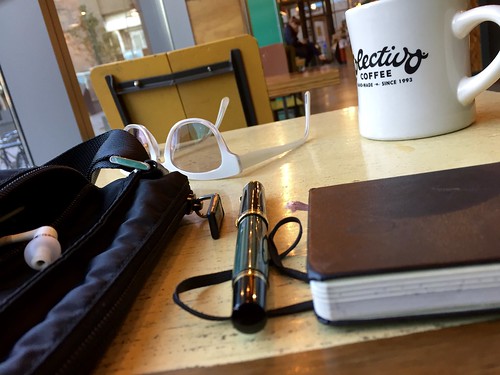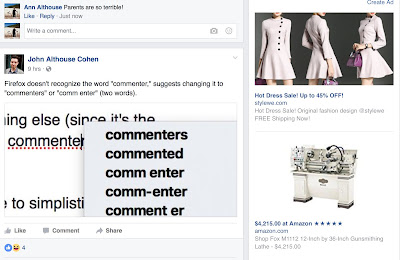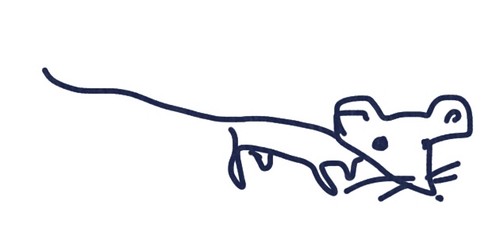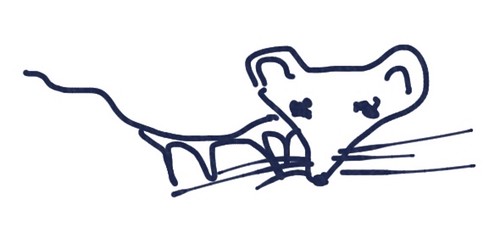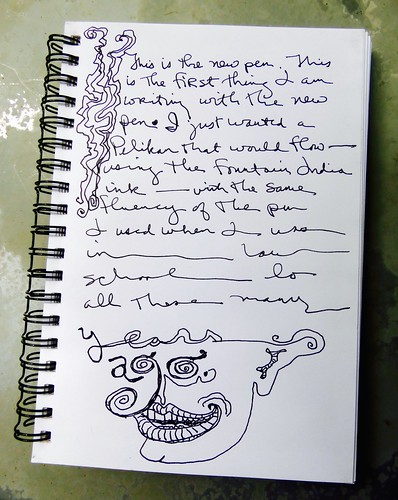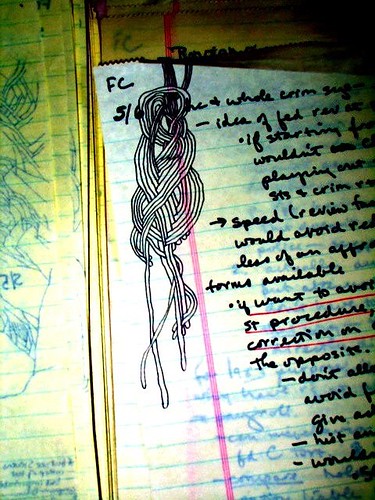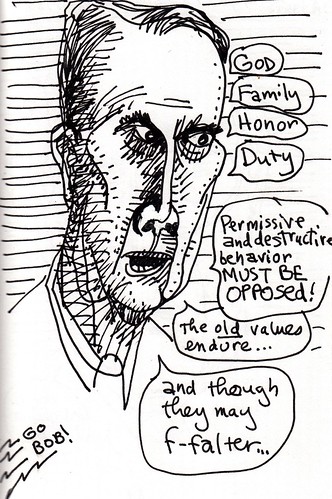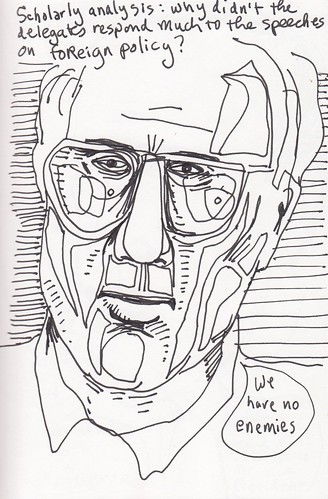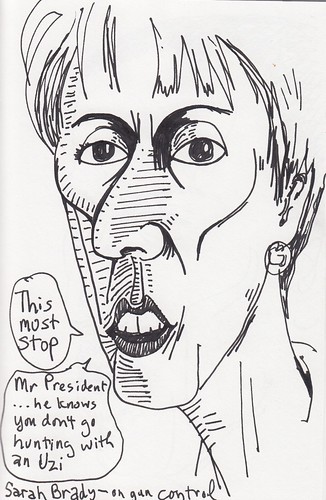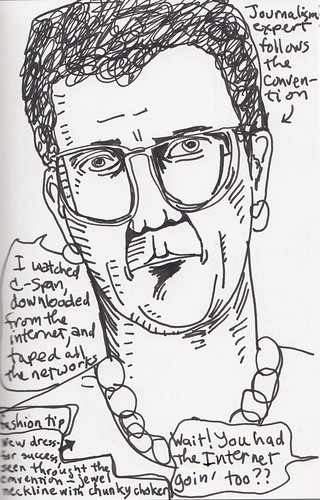This blog is called Marginalia, because I'm writing from Madison, Wisconsin, and Marginalia is a fictionalized name for Madison that I thought up a long time ago when I seriously believed I would write a fictionalized account of my life in Madison, Wisconsin. There is nothing terribly marginal about Madison, really, but I do like writing in the margins of books, something I once caused a librarian to gasp by saying. Writing in a blog is both less and more permanent than writing in the margin of a book.If you keep reading, you'll have to read 47,395 posts before you get to this one. Imagine all the transitory matters — big and small — you'd have to get your mind around again to read through these posts — an average of 10 per day for all those days. And — as I've said every year on January 14th — I've written every single day. Never one day without writing. And I'm still going on the intrinsic joy of writing. It's incredibly rewarding to have readers.
It's been great being a law professor for the last 32.5 years. There are many rewards as well as challenges working with colleagues and students, but there is always the element of coercion. You must do your job — obligations continually arise — and the people you interact with are stuck with you. They may like some of it, but they won't like all of it. And there's always a mystery about where the line is between love and tolerance and between tolerance and loathing.
I've withdrawn into the purely voluntary world of blogging. January 12th, the last day of Fall semester and my birthday, was my last day at work. We will see what happens to the blog now with my new dosage of time and freedom. I'm curious to see! I not only have more time and freedom, I have the curiosity to see how the new time and freedom will affect the writing here.
If you don't give a damn, fine! I am weary of inflicting myself on people who may not continually consent to listening to me. I don't like imposing on anyone, and it's not my favorite thing to consume words for which I do not feel an ongoing hunger. How much Supreme Court prose must I drag my eyes across without even the hope of getting to a Scalia opinion? 32.5 years of obligation to slog — 32.5 years of slogligation — is enough.
We're about to get our low-attention-span President, and I will indulge my low-attention-span reading propensities. We will see what happens. So far what has happened, doing only what I love here, is 13 years of 10-post-a-day blogging without a single day's break. It's not as though I'm doggedly plugging away here trying to keep a record going. It's only blogging if it runs on intrinsic reward.
The heart is still beating, and it's one more morning on Althouse. Or as it was for just that first day, Marginalia.
